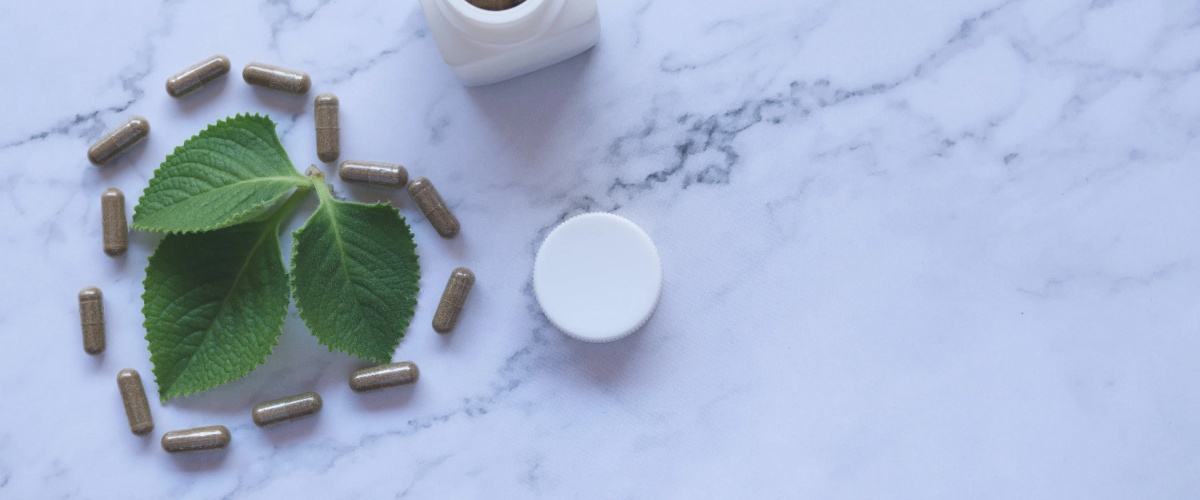In recent years, spermidine trihydrochloride has gained attention for its potential health benefits, including its ability to promote cellular health, improve heart function, and enhance overall health. As more and more people become interested in incorporating spermidine into their daily lives, the market for spermidine trihydrochloride supplements continues to expand, making choosing the right product even more challenging. By taking the time to research and choose a high-quality product, you can maximize the potential benefits of spermidine and support your overall health and well-being.
Spermidine is a natural compound and a polyamine that can attach to a variety of molecules and plays an important role in many cellular functions, such as maintaining DNA stability, copying DNA into RNA, and preventing cell die. It also suggests that polyamines function similarly to growth factors during cell division. That’s why putrescine and spermidine are essential for healthy tissue growth and function. Spermidine Trihydrochloride is the trihydrochloride form of spermidine and is typically available in capsule or powder form.
Spermidine occurs naturally in a variety of foods and is often derived from natural sources such as wheat germ or soybeans. It plays a vital role in cell growth and survival and has a range of health benefits. Getting enough spermidine from your diet alone can be challenging in life, and spermidine trihydrochloride, a concentrated form of spermidine, fills the gap. Spermidine Trihydrochloride supplements show great promise in promoting cellular health, cardiovascular health, brain health, and longevity.
Spermidine is a naturally occurring polyamine found in nearly all living organisms, including plants, animals, and microorganisms. It is involved in a wide range of biological processes, including cell growth, proliferation and survival. Spermidine can induce autophagy, a process of cell regeneration, through the TOR kinase pathway. Spermidine trihydrochloride is the trihydrochloride form of spermidine. One of its key mechanisms of action is also its ability to regulate autophagy. Autophagy is the body's natural process of removing damaged organelles and proteins. Autophagy plays a vital role in cells. Occurs naturally in cells as it regulates cell metabolism. Furthermore, autophagy plays a crucial role in maintaining cellular homeostasis and is associated with various age-related diseases. Autophagy also balances nutrients during cellular stress and therefore can be accelerated by fasting or by caloric restriction mimetics (CRMs) such as spermidine, which mimic the effects of fasting on the body. Spermidine trihydrochloride has been shown to enhance autophagy, thereby helping to prevent age-related decline and extend lifespan.
Additionally, spermidine trihydrochloride has been found to exert its effects by modulating various signaling pathways in the body. It has been shown to activate the AMPK pathway, which plays a key role in energy metabolism and has been implicated in the regulation of lifespan and age-related diseases. In addition, spermidine trihydrochloride inhibits the mTOR pathway involved in cell growth and proliferation. Dysregulation of the mTOR pathway has been implicated in various age-related diseases, and by inhibiting this pathway, spermidine trihydrochloride may help prevent these diseases. In addition to its effects on cellular processes, spermidine trihydrochloride has been shown to have beneficial effects on cardiovascular health.

1.Chemical structure
Spermidine is a naturally occurring polyamine compound found in all living cells. It consists of four carbon atoms, eight hydrogen atoms, and three amine groups. Spermidine trihydrochloride, on the other hand, is the trihydrochloride form of spermidine, which means it contains three hydrochloric acid molecules. This difference in chemical structure affects the solubility, stability, and bioavailability of the compound. For laboratory use. Adding a hydrochloride group to spermidine increases its solubility in water, making it easier to use in a laboratory setting. This modification allows for more accurate measurements and better control in experimental settings.
2.Application areas
Spermidine and spermidine trihydrochloride have similar applications in research, medicine, and skin care. Spermidine is being studied for its potential role in promoting autophagy, a cellular process that helps remove damaged components and maintain cell health. It is also being studied for its neuroprotective, cardioprotective and anti-inflammatory properties and is often used in dietary supplements and skin care products. Spermidine trihydrochloride, on the other hand, is commonly used in laboratory settings for cell culture and molecular biology experiments. Its salt form makes it more stable and easier to handle in research applications.
3.Health benefits
Both spermidine and spermidine trihydrochloride have a wide range of health benefits. Research shows that spermidine supplementation can induce autophagy, improve mitochondrial function, and enhance cellular recovery from stress. Studies have shown that spermidine supplementation improves cell function and extends lifespan in a variety of organisms, including yeast, fruit flies, and mice. These effects may help it promote longevity and reduce the risk of age-related diseases such as cardiovascular disease, neurodegenerative diseases and cancer. Spermidine trihydrochloride, although primarily used in research settings, may provide similar health benefits if properly formulated for human consumption.
4.Bioavailability
One of the main differences between spermidine and spermidine trihydrochloride is their bioavailability. Spermidine trihydrochloride, as a salt form, may have different pharmacokinetic properties compared to free spermidine. The addition of hydrochloric acid molecules can affect the absorption, distribution, metabolism and excretion of compounds in the body.

1. Improve cognition
Multiple studies have shown that this compound may have neuroprotective effects and may help prevent age-related cognitive decline. In a study published in the journal Cell Reports, researchers found that Spermidine trihydrochloride supplementation improved cognitive function in aging mice. The study suggests that Spermidine trihydrochloride may help enhance memory and learning and could potentially be used as a therapeutic intervention for age-related cognitive decline in humans.
In addition, spermidine trihydrochloride has been shown to have potential benefits in neurodegenerative diseases such as Alzheimer's and Parkinson's diseases. In a study published in the journal Nature Medicine, researchers found that Spermidine trihydrochloride supplement ation reduced the accumulation of damaged proteins in the brain and improved motor function in a mouse model of Parkinson's disease. These findings suggest that spermidine trihydrochloride may have the potential to slow the progression of neurodegenerative diseases and may be a promising area for further research.
In addition to its potential neuroprotective effects, spermidine trihydrochloride has been shown to have anti-inflammatory and antioxidant properties, which may further contribute to its cognitive benefits. Chronic inflammation and oxidative stress are associated with cognitive decline, and compounds that counteract these processes may help protect cognitive function. Therefore, Spermidine trihydrochloride's ability to reduce inflammation and oxidative damage may play a role in its cognitive benefits.
2. Neuroprotection
Spermidine trihydrochloride has been shown to have potent neuroprotective properties, making it a candidate for the prevention of neurodegenerative diseases such as Alzheimer's disease and Parkinson's disease. Neuroprotection refers to protecting the structure and function of brain neurons, which is critical for maintaining cognitive function and overall brain health.
One of the ways spermidine trihydrochloride exerts its neuroprotective effects is through its ability to enhance autophagy, a cellular process that plays a key role in clearing damaged or dysfunctional components within cells. Autophagy is critical for maintaining neuronal health and function, and impairment of this process has been linked to the development of neurodegenerative diseases. Spermidine trihydrochloride has been shown to promote autophagy, helping to clear the brain of toxic protein aggregates and other harmful substances that contribute to neurodegeneration.
In addition to promoting autophagy, spermidine trihydrochloride has been found to have antioxidant and anti-inflammatory properties, which are important in protecting the brain from damage caused by oxidative stress and inflammation. Oxidative stress and inflammation are common features of neurodegenerative diseases, and reducing these processes can help slow the progression of these diseases.
Several studies have provided evidence for the neuroprotective effects of spermidine trihydrochloride. For example, a study published in the Journal of Neuroscience showed that treatment with spermidine trihydrochloride improved cognitive function and reduced neuropathology in a mouse model of Alzheimer's disease. Likewise, another study published in the Journal of Neurochemistry found that spermidine trihydrochloride protected neurons from toxic damage and improved motor function in a mouse model of Parkinson's disease.
3. Improve cardiovascular health
Spermidine trihydrochloride benefits cardiovascular health primarily through its ability to promote autophagy, the body's process of removing damaged or dysfunctional cells and regenerating new, healthy cells. This is important for the heart because it can help prevent the buildup of plaque in the arteries and reduce the risk of heart disease. Additionally, spermidine trihydrochloride has been shown to have anti-inflammatory and antioxidant properties, helping to protect the heart from oxidative stress and inflammation, both of which are risk factors for cardiovascular disease. Research also suggests that spermidine trihydrochloride may have a positive impact on blood pressure and cholesterol levels, further supporting its potential role in cardiovascular health.
So, how do you incorporate Spermidine Trihydrochloride into your diet to support your heart health? As mentioned earlier, certain foods are rich in spermidine trihydrochloride, including soybeans, whole grains, and mushrooms. By regularly including these foods in your diet, you can naturally increase your intake of this beneficial compound. However, it is important to note that the amount of spermidine trihydrochloride in foods can vary, and it may be difficult to consume sufficient amounts through diet alone. This is where supplementation may be beneficial, especially for those who wish to support heart health or have specific cardiovascular disease risk factors.
4. Promote metabolism
A study published in the journal Cell Metabolism found that spermidine supplementation improved metabolic function in mice. Researchers observed an increase in energy metabolism and found that spermidine supplementation improved insulin sensitivity and glucose tolerance. These findings suggest that spermidine trihydrochloride may play a role in improving metabolism and overall metabolic health.
Another study also found that spermidine supplementation had beneficial effects on metabolism. The researchers observed that spermidine promotes mitochondrial function and biogenesis, which are critical for energy production and metabolism.
Spermidine trihydrochloride may affect metabolism through multiple mechanisms. One potential mechanism is its ability to regulate autophagy, a cellular process that plays a key role in maintaining metabolic homeostasis. Autophagy helps clear damaged organelles and proteins so cells can function more efficiently. Spermidine has been shown to activate autophagy, which may contribute to its effects on metabolism.
If you're looking to improve your overall health, you may find spermidine trihydrochloride supplementation a potential option. Spermidine is a natural compound found in certain foods that has gained attention for its potential anti-aging and health-promoting properties. Here are some key factors to consider when choosing a spermidine trihydrochloride supplement:
1. Quality and Purity: When it comes to supplements, quality and purity are crucial. Look for products made from high-quality ingredients and rigorously tested to ensure purity and potency. Choose reputable brands with transparent sourcing and manufacturing processes.
2. Spermidine Trihydrochloride Content: The spermidine content in supplements varies from product to product. It is important to choose a supplement that provides an effective dose of spermidine to reap its potential benefits. Look for products that clearly state the spermidine content per serving on the label.
3. Formulation: Consider the formula of your supplement. Spermidine trihydrochloride supplements are available in various forms such as capsules and powder. Choose a form that is convenient for you to take and fits your lifestyle.
4. Other Ingredients: Some Spermidine trihydrochloride supplements may contain other ingredients that enhance their effectiveness, such as vitamins, antioxidants, or other natural compounds. Consider whether you want a spermidine supplement alone, or one that includes other ingredients for additional benefits.
5. Price and Value: While price should not be the only deciding factor, the cost of a supplement should be considered in relation to its quality and value. Compare different options and evaluate the overall value you get for your investment.
6. Consult a healthcare professional: If you have any underlying health conditions or are taking medications, it is important to consult a healthcare professional before starting any new supplement regimen. They can provide personalized guidance and ensure supplements are safe and right for you.
Suzhou Myland Pharm & Nutrition Inc. has been engaged in the nutritional supplement business since 1992. It is the first company in China to develop and commercialize grape seed extract.
With 30 years of experience and driven by high technology and a highly optimized R&D strategy, the company has developed a range of competitive products and become an innovative life science supplement, custom synthesis and manufacturing services company.
In addition, the company is also an FDA-registered manufacturer, ensuring human health with stable quality and sustainable growth. The company's R&D resources and production facilities and analytical instruments are modern and multifunctional, and are capable of producing chemicals on a milligram to ton scale in compliance with ISO 9001 standards and GMP manufacturing practices.
Q: What is Spermidine Trihydrochloride?
A: Spermidine Trihydrochloride is a natural polyamine compound found in various foods such as wheat germ, soybeans, and mushrooms. It has been studied for its potential health benefits in supporting cellular health and promoting longevity.
Q: How do I choose the best Spermidine Trihydrochloride supplement?
A: When choosing a Spermidine Trihydrochloride supplement, it is important to look for a reputable brand that uses high-quality ingredients and has been tested for purity and potency. It is also recommended to consult with a healthcare professional before starting any new supplement regimen.
Q: What are the potential benefits of taking Spermidine Trihydrochloride supplements?
A: Spermidine Trihydrochloride supplements have been studied for their potential benefits in supporting cellular health, promoting autophagy (the body's natural process of cellular waste removal), and potentially extending lifespan. However, more research is needed to fully understand the long-term benefits and potential risks of Spermidine Trihydrochloride supplementation.
Disclaimer: This article is for general information only and should not be construed as any medical advice. Some of the blog post information comes from the Internet and is not professional. This website is only responsible for sorting, formatting and editing articles. The purpose of conveying more information does not mean that you agree with its views or confirm the authenticity of its content. Always consult a health care professional before using any supplements or making changes to your health care regimen.
Post time: Jan-29-2024






